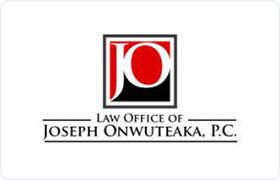New Caney Real Estate Other Lawyer, Texas
Sponsored Law Firm
-
 x
x

Click For More Info:
-
Law Office of Joseph Onwuteaka, P.C.
8323 Southwest Fwy Suite 650 Houston, TX 77074» view mapSlip & Fall Accident Fighting Fearlessly For Your Rights
I'm committed to providing experienced and tenacious legal representation. I will fight for the best possible outcome in your case & won't give up, even when things get tough.
800-960-3430
Includes: Commercial Leasing, Commercial Real Estate, Condominiums, Conveyancing, Housing & Urban Development, Premises Liability, Residential Real Estate, Title Insurance
Sherry D. Tavel
Bankruptcy, Elder Law, Family Law, Criminal, Commercial Real Estate
Status: In Good Standing Licensed: 36 Years
FREE CONSULTATION
CONTACTShelton Jon Mcdonald
Commercial Real Estate, Real Estate, Business & Trade, Business
Status: In Good Standing Licensed: 19 Years
Royce Fredrick Carrigan
Commercial Real Estate, Oil & Gas, Gift Taxation, Banking & Finance
Status: In Good Standing Licensed: 23 Years
Janene Forster
Administrative Law, Commercial Real Estate
Status: In Good Standing Licensed: 46 Years
Kristina Craig Burleigh
Commercial Real Estate, Immigration, Wills, Criminal, Elder Law
Status: In Good Standing Licensed: 15 Years
Jeffrey West Burnett
Commercial Real Estate, Public Finance, Wills, Business & Trade
Status: In Good Standing Licensed: 25 Years
Seth Bud Larsen
Commercial Real Estate, Intellectual Property, Public Schools, Administrative Law
Status: In Good Standing Licensed: 11 Years
Derek Grant Hoffpauir
Commercial Real Estate, Oil & Gas, Banking & Finance, Consumer Bankruptcy
Status: In Good Standing Licensed: 12 Years
Michael Ray Carr
Commercial Real Estate, Wills, Business & Trade, Business
Status: In Good Standing Licensed: 48 Years
Evelyn E. Terrell
Commercial Real Estate, Public Finance, Business & Trade, Banking & Finance
Status: In Good Standing Licensed: 32 Years
 Joseph Onwuteaka Houston, TX
Joseph Onwuteaka Houston, TX Practice AreasExpertise
Practice AreasExpertise
